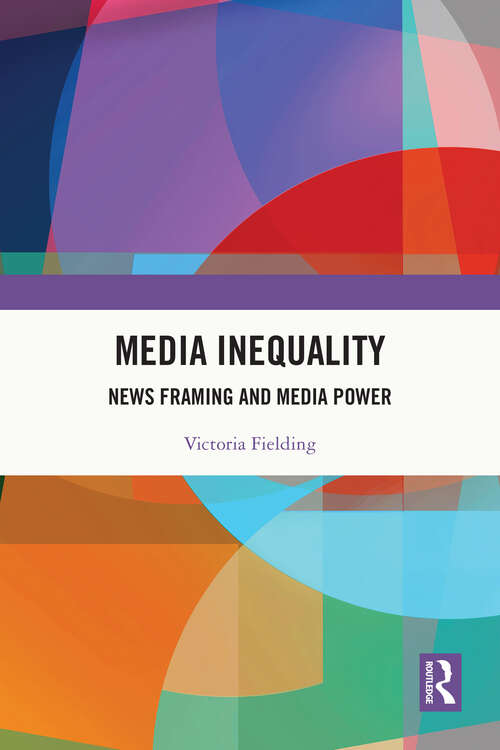
Media Inequality: News Framing and Media Power (ISSN)
Arts and entertainment
Synthetic audio, Automated braille
Summary
News media notionally underpins a vibrant and diverse democracy by representing political, industrial and social conflict to mass audiences. Yet, few studies measure how equitably journalists frame public contestation. Despite framing theory’s extensive use in media and communication scholarship, little… is known about how frames are created and disseminated - how frames are built - to explain how and why journalists frame news the way they do.Media Inequality proposes that frame building occurs through a two-step process of frame adoption and replication. This two-step frame-building process is explored by identifying the newspaper master narratives used in five historical industrial dispute case studies. These master narratives are then mapped to public narratives used by unionised firefighters and their employer in the Australian case of the 2016 Victorian Country Fire Authority industrial dispute. By theorising about the causes of journalists’ inequitable framing of contested narratives, Media Inequality tells the story of unconscious structural media bias, interrogates the power of news media to reinforce dominant frames, offers valuable theoretical perspectives about the influence of media power on the accumulation of power in society, and provides lessons for groups communicating in competitive contexts.Media Inequality is thus valuable to scholars, academics and research students in the fields of journalism, communication, and media, particularly scholars interested in how journalists represent political, industrial, and social contestation.